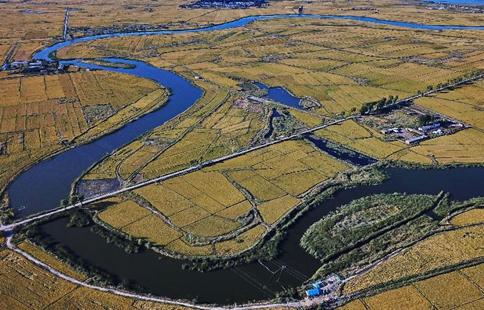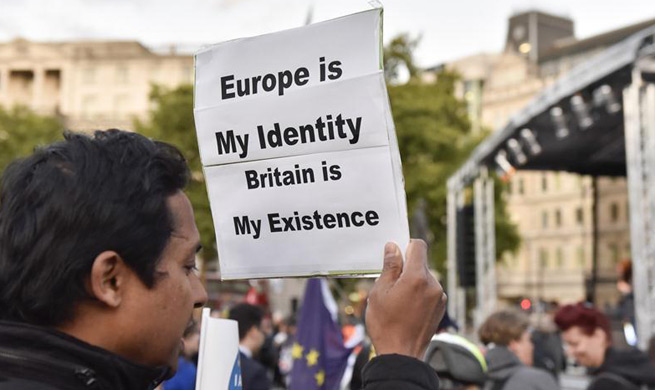LONDON, Sept. 14 (Xinhua) -- The British Home Office on Thursday announced that a record number of people had been arrested for terrorism-related offences in the year ending June 2017, representing an increase of 68 percent over the same period the year before.
The United Kingdom still meets with further terrorist threats security officials warned that Islamic State (IS) propaganda was producing homegrown terrorists at an unprecedented rate.
The "terrorist threat picture" has diversified enormously in recent months and it's likely to remain severe for the foreseeable future.
Mark Rowley, the most senior anti-terror official in the UK, said that British police have been arresting a suspect every day.
In the three years until March this year, police thwarted 13 potential attacks, but in the next 17 weeks, there were four attacks and six foiled attacks, Rowley said.
Three of the deadly terrorist attacks were in London -- Westminster Bridge, London Bridge and Finsbury Park -- and the fourth was in Manchester at a concert of U.S. pop singer Ariana Grande.
The new official figures came after recent media reports revealed that the Islamic State (IS) recruiters had used encrypted message services to encourage terrorist attacks on London Bridge and Westminster.
Meanwhile, a news report claimed in early September that a leading member of National Action, a neo-Nazi organization in the UK, had helped up to 10 members of the far-right group infiltrate the British Army.
The revelation fueled fears that cells of far-right extremists were operating in the army's ranks, prompting plans to overhaul the security vetting of new recruits into the British armed forces.
Four British soldiers and one civilian were arrested on Sept. 5 for terror offences. National Action became the first extreme right-wing group to be banned in the United Kingdom under terrorism laws adopted in December 2016.
Announcing the move to ban National Action at the time, British Home Secretary Amber Rudd described the group as a "racist, antisemitic and homophobic organization."
Following repeated terrorist attacks in the United Kingdom, authorities are reviewing maximum sentences for some terrorism offences.
Punishments for crimes such as failing to alert authorities to possible attacks, which carries a maximum five-year jail term, may be too soft, some British anti-terror experts argued here.
British security sources said that particular attention was being paid to a list of between 10 and 20 of the most dangerous or "hard core" of the 100 people who posed the highest risk -- those who had been trained by IS.
Some of them would carry out terrorism missions in the UK and the others were more likely to go to Yemen, Libya or the southern Philippines, according to the news reports.
British police have built cases against a large number of those who might return and are confident charges could be brought against them for preparing acts of terrorism abroad, the reports said.
Part of the problem is that propaganda has "democratized the threat" so that self-starters and those acting alone can easily view material that encourages them to launch low-tech attacks.
Vulnerable teenagers and young adults begin by exploring extremist content on social media platforms, and then contact extremists on encrypted apps.
Some experts argued that a ban on encryption was unworkable. They said that any messaging service featuring a "back door" would put ordinary users at risk of hackers.
Since there has been no consensus reached so far on encryption, the debate won't go away any time soon.

















